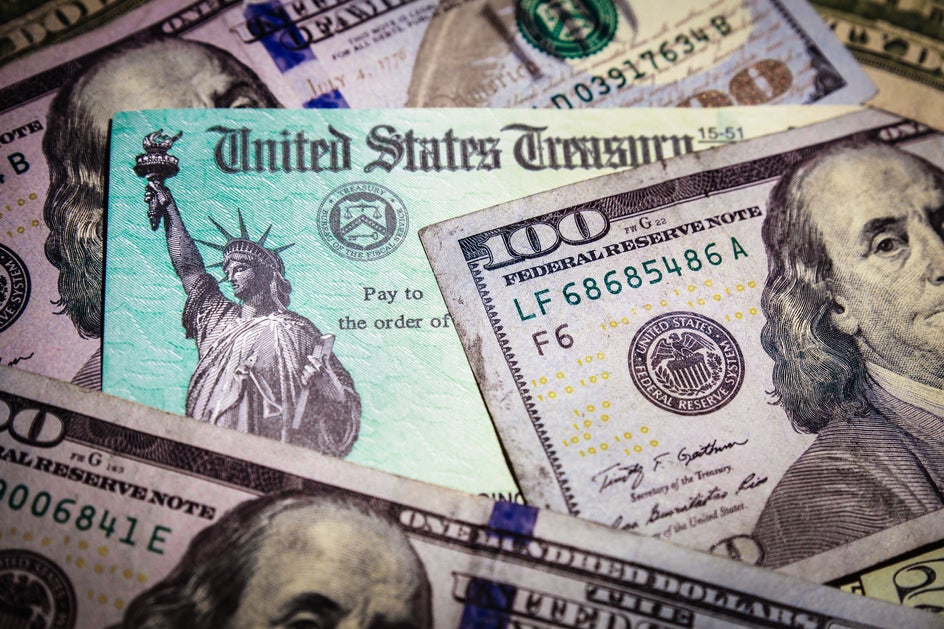April 26, 2023 1:24 PM | 3 min read
Tax refunds can help people pay down debt and boost savings. But this year, Americans are getting less help from Uncle Sam, according to the Internal Revenue Service.
The latest IRS data suggests that as of April 14, the agency has issued $215.36 billion of refunds. That is $27.3 billion — or 11.2% — less than the $242.63 billion it issued by mid-April 2022.
The average refund amount stands at $2,840 so far, about 8.5% less compared to the $3,103 average refund check a year ago.
ENTER TO WIN $500 IN STOCK OR CRYPTO
Enter your email and you’ll also get Benzinga’s ultimate morning update AND a free $30 gift card and more!
With pandemic-related benefits and tax credits gone, many Americans are receiving smaller refunds or owing money to the IRS.
And all of this is happening at a time when rampant inflation is eroding Americans’ purchasing power. In March, the consumer price index increased 5% from a year ago.
Options 101: The Beginner’s Guide
Want to become an options master? In his free report, options expert Nic Chahine will give you access to the four bulletproof tips for beginners, the secret to scoring 511% gains with options, and his time-tested “plan” for success. Grab your free copy of Options 101: The Beginner’s Guide ASAP.
If you are an investor, it might be a good idea to consider some tax-efficient investing strategies. After all, the billionaires have long been using these to lower their tax bills — legally.
Making Money From Assets
The fairness of the U.S. tax system and whether the rich are paying their fair share has long been debated.
Most billionaires build their wealth from assets — like stocks and real estate. Their net worth goes up when these assets increase in value over time. But the U.S. tax system is not designed to capture the gains from such assets: Capital gains are typically taxed at lower rates than wages and salaries.
According to a report from ProPublica, Amazon.com Inc. Founder Jeff Bezos “did not pay a penny in federal income taxes” in 2007 and 2011. It also noted that Tesla Inc. CEO Elon Musk paid no federal income tax in 2018 and investing legend George Soros did the same for three consecutive years.
Here’s the neat part: When stocks go up in value, investors only pay tax on realized gains. In other words, if an investor doesn’t sell anything, they don’t have to pay capital gains tax even if their stock holdings have skyrocketed in value because the gains are not realized.
According to ProPublica, that’s why some billionaires choose to borrow against their assets instead of selling them. Doing so gives the ultra-wealthy money to spend while deferring taxes on capital gains indefinitely.
When they do sell their shares, they can still get hit with a substantial tax bill. After Musk sold a ton of Tesla shares in 2021, he tweeted that he would pay over $11 billion in taxes that year.
Another popular option for billionaires is real estate, which comes with plenty of tax advantages as well.
When you earn rental income from an investment property, you can claim deductions. These include expenses such as mortgage interest, property taxes, property insurance and ongoing maintenance and repairs.
There’s also depreciation, which refers to the incremental loss of a property’s value as a result of wear and tear. Real estate investors can claim depreciation for many years and accumulate significant tax savings over time.
The best part? The segment is becoming increasingly accessible to retail investors. Publicly traded real estate investment trusts (REITs) own income-producing real estate and pay dividends to shareholders. And if you don’t like the stock market’s volatility, there are also crowdfunding platforms that allow retail investors to invest directly in rental properties through the private market.
Read next: While REITs Are Struggling, Private Market Real Estate Pulls In Huge Returns
© 2023 Benzinga.com. Benzinga does not provide investment advice. All rights reserved.

